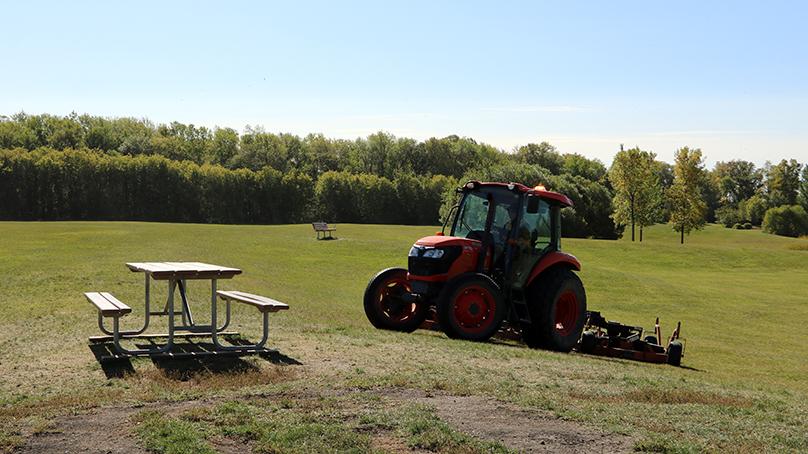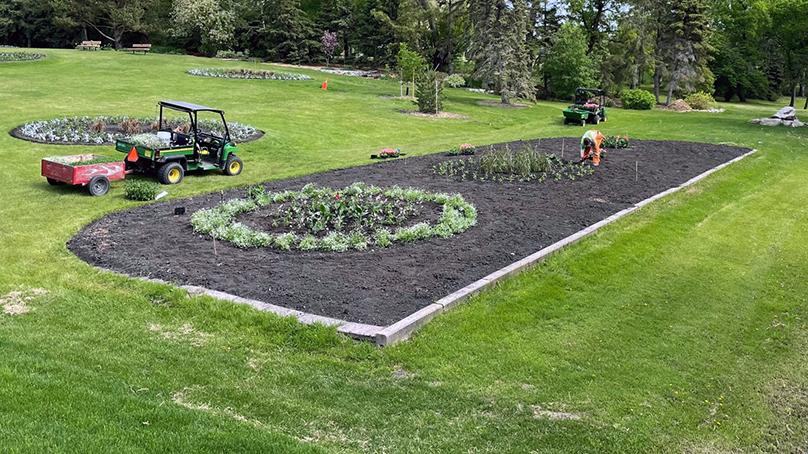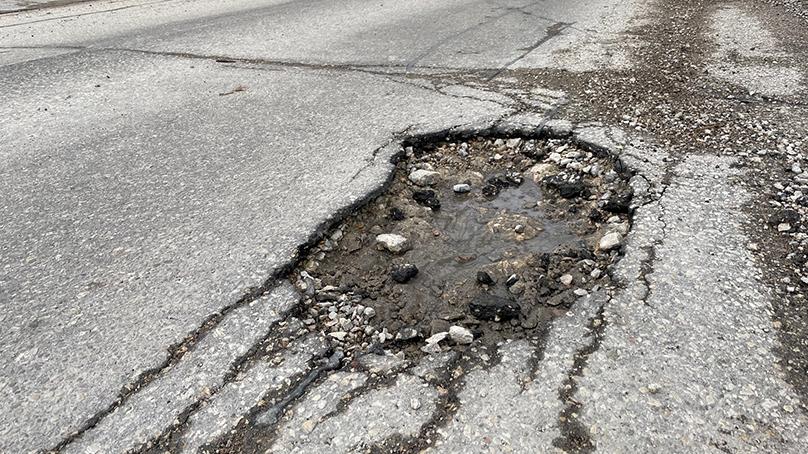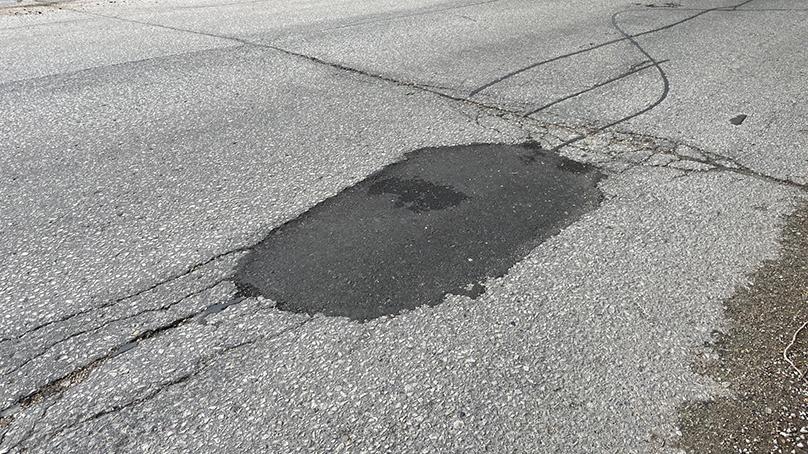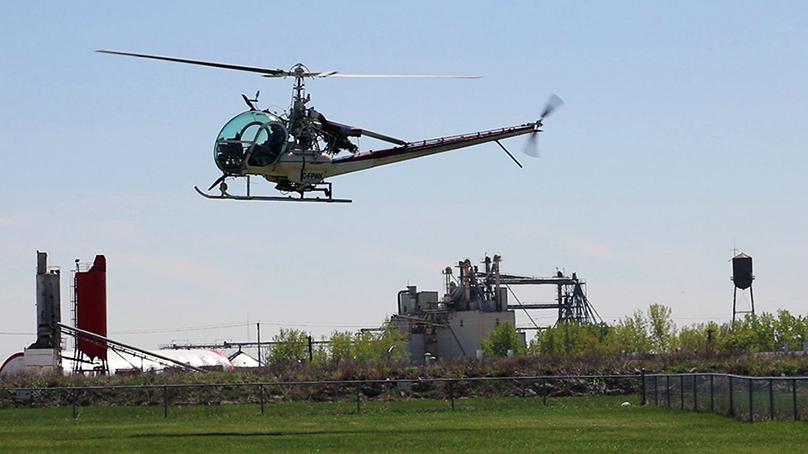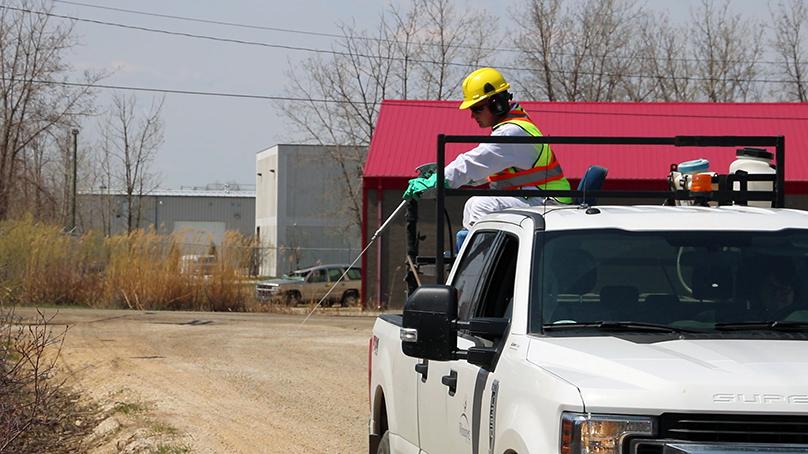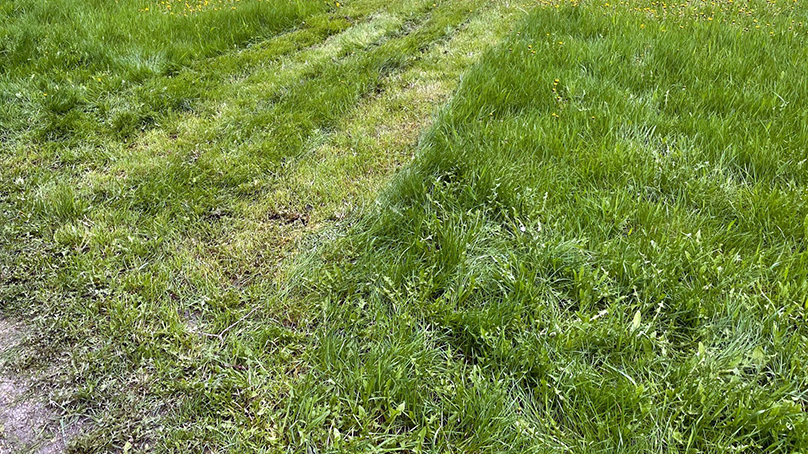
A snowy winter, waterlogged spring, and a rainy to start the summer has meant our Public Works crews have had to adapt seasonal operations to keep up with whatever Mother Nature throws our way.
Grass mowing challenges
While the rain and hot weather has made for ideal grass growing conditions, the wet weather has also made mowing the grass difficult. Not only did it delay the start of our mowing program by about three weeks, but it means the mowing cycle for our parks and boulevards is taking longer than the typical 10 to 14 days.
“The frequent rainfalls are not allowing the turf to dry out. This is causing delays in mowing and increased wear and tear on the equipment when we try to mow wet grass,” said Kyle Lucyk, Parks Services Administrator.
Our parks crews also had to wait to get our gardens going this spring, with the floral display planting delayed by about two weeks. They have all since been planted and are ready for you to plan your garden tour to celebrate the Year of the Garden.
Pothole patching continuing
Weather impact are also being felt on the road. While we are not anticipating significant impacts on the delivery of this year’s road renewal program at this time, the cold, wet spring meant that it took longer than normal for our crews to start using a hot asphalt mix to make more permanent pothole repairs.
“We understand how frustrating navigating potholes can be and that’s why pothole patching on main roads and bus routes has continued to be an ongoing focus for us,” said Michael Cantor, Manager of Streets Maintenance.
So far this year, 311 has received just under 10,000 requests for service related to potholes. If you spot a pothole, please let us know using our quick and convenient online form so our crews can address it.
Minimizing mosquitoes
Meanwhile, the frequent and significant rainfall left behind a lot of standing water. As a result, our insect control team has had to prioritize larviciding efforts to keep mosquitoes at bay, with crews going out on foot, in vehicles, and in helicopters to aggressively target the insect’s breeding grounds.
“The goal is for us to stop mosquito larvae from becoming adult mosquitoes,” said David Wade, Superintendent of the Insect Control Branch.
Mosquito trap counts are closely monitored and are regularly posted online. For adulticiding, or fogging, to take place, Wade said requirements of the City Adult Mosquito Control Policy, the Adulticiding Factor Analysis (AFA) Guidelines, and the Provincial Pesticide Use Permit must be met.
The heavy focus on larviciding meant this year’s tree pest caterpillar treatment program did not run. Wade said the tree pest caterpillar population was lower than previous years because of the cyclical occurrence of the insects.
He added that the cooler, rainy conditions have resulted in fewer aphids. Last year, the aphids had caused a sticky situation on many roads, sidewalks, and vehicles. Wade has also said he has received fewer calls about wasps, which he attributes to the cooler conditions.

